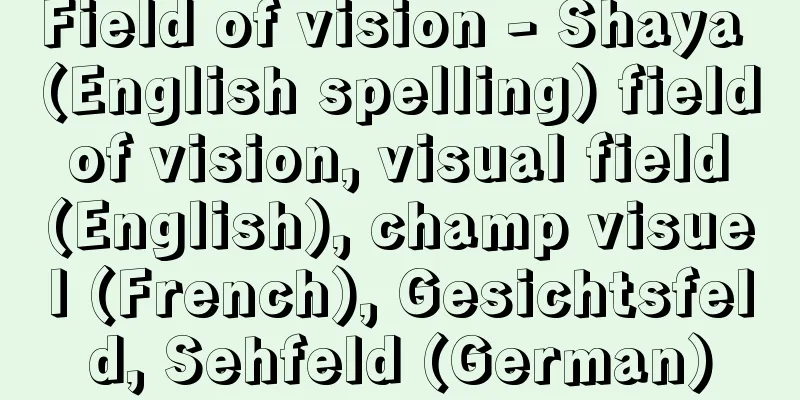Book of Job

|
The Book of Job is a part of the Hebrew Bible (Tanakh) (the third part of the canonical scriptures of Judaism), known as the Kesvim, and a part of the Old Testament in Christianity. It is often considered one of the world's greatest literary works. The Book of Job deals with the eternal problem of unjust trials, and is named after the main character, Job, who tries to make sense of the trials in which he finds himself. The book is about the story of Job, which is also mentioned in Ezekiel 14:14, 20. It is divided into the following sections: (1) the trials that came to Job after a bet between God and Satan over Job's faith (chapters 1-2); (2) a dialogue-style discussion between Eliphaz, Bildad, and Zophar, who heard of Job's calamity and came to comfort him, and Job, who was suffering from his calamity and cursing the day of his birth; and a sermon by each of the three friends urging Job to fear God and seek Him without despising the Almighty's punishment (retribution) (chapters 3-13); (3) a sermon by Elihu, the fourth friend (chapters 32-37); (4) God's appeal to Job and revelation of Himself as the Creator (chapters 38-41); and (5) Job's repentance and the restoration of his prosperity (chapter 42). The artistic development of the Book of Job has been highly influential. The poetic debate is set within the prose framework of an ancient legend, also of non-Israeli origin. The legend concerns Job, a very pious and wealthy man. Satan serves to test Job's piety, whether it is merely due to his material prosperity. However, despite unimaginable losses, including the loss of his possessions, his children, and finally even his own health, Job refuses to curse God. After a while, upon hearing of Job's misfortune, three friends, Eliphaz, Bildad, and Zophar, come to comfort him, and from this point the poetic dialogue begins. The poetic debate is structured as three separate speeches, in which Job argues with each of his three friends and finally with God. All the debates seek to discover the meaning of Job's trials, explaining why they were given to him and the attitude he should adopt. In three separate speeches, Job asserts his innocence and the injustice of his trials, while his friends argue that he is suffering because of his own sins. Confident in his own sincerity and righteousness, Job is not satisfied with his friends' explanations. However, Job's conversation with God resolves this extremely tense situation without providing an answer to the question of why he is being unfairly tested. In his conversation with God, Job regains faith that there is meaning in God's work in this world, even though God's way of dealing with man remains mysterious and incomprehensible. (→ Wisdom Literature) Source: Encyclopaedia Britannica Concise Encyclopedia About Encyclopaedia Britannica Concise Encyclopedia Information |
|
ユダヤ教の正典としてのヘブライ語聖書(タナハ)の第3部「諸書」(ケスビーム)に属し,キリスト教における旧約聖書の一部をなす書。しばしば世界的な文学作品の一つにも数えられる。ヨブ記は不当な試練という永遠の問題がテーマで,みずからが巻き込まれた試練の意味を理解しようとする主要登場人物ヨブの名前にちなんで名づけられた。 内容は『エゼキエル書』14章14,20にも言及されているヨブについての物語であり,(1) ヨブの信仰をめぐる神とサタンの賭けを契機としてヨブに訪れた試練(1~2章),(2) ヨブの災いを聞いて慰めるために彼のもとへ来たエリパズ,ビルダデ,ゾパルと,災いに苦しみ自分の生まれた日を呪うヨブとの対話形式による議論,3人の友人おのおのの,神をおそれ,全能者の懲らしめ(応報)を軽んじることなく神を求めよとの説教(3~13章),(3) 第4の友人エリフの説教(32~37章),(4) 神のヨブへの呼びかけ,創造者としての自己の啓示(38~41章),(5) ヨブの悔い改めとその繁栄の回復(42章)に分かれる。 ヨブ記の芸術的展開は,大きな影響力をもっている。詩文体による討論は,イスラエル以外にも起源をもつ古代の伝説の散文的枠組みの中でなされている。この伝説は,非常に敬虔で裕福な男ヨブに関するものである。サタンは,ヨブの敬虔さは単に彼の物質的繁栄に起因するものかどうかを試す役割を果たしている。しかし,彼の財産,子供たち,最終的には彼自身の健康さえも奪われるという,想像を絶するほどの損失にあいながらも,ヨブは神を呪うことを拒む。しばらくするとヨブの災いを聞いて,エリパズ,ビルダデ,ゾパルの 3人の友が彼を慰めにやって来て,この時点から詩的な対話が始まる。詩文体による討論は 3回にわたるそれぞれのスピーチからなり,それに対してヨブは 3人の友と論争し,最終的に神と語るという形式をとっている。交わされる討論はすべてヨブの試練の意味をつきとめるものであり,試練が与えられた理由とヨブがとるべき態度について説いている。3回ずつにわたる弁論で,ヨブは彼の潔白さと彼が受けている試練の不当性を主張する一方,彼の友はヨブはみずからの罪のために苦しめられているのだと論じる。自分の誠実さと正しさを確信してやまないヨブは,友のそのような説明に満足できない。しかし,ヨブと神との会話は,なぜ不当な試練が与えられるのかという問題の答えを得ずして,この極度の緊迫状況を解いてくれる。神が人を取り扱われる方法は依然謎に満ち,不可解であるけれども,この世において神のなされるわざには意味があるという信仰を,ヨブは神との会話において再びもつにいたる。(→知恵文学) 出典 ブリタニカ国際大百科事典 小項目事典ブリタニカ国際大百科事典 小項目事典について 情報 |
Recommend
Tulipa kaufmanniana (English spelling)
…[Hiroshi Aramata]. … *Some of the terminology th...
Esan style pottery
...Elaborate bone and horn implements have been c...
Business tax - Jigyozei
This is a tax levied by prefectures on individual...
folding knife
…Knives as tools are diverse in both function and...
Asaf Khan - Asaf Khan
…Son of the fourth emperor, Jahangir, who had wit...
Asahina (Kabuki)
…He excelled in Shosagoto, but was especially kno...
Asparagus sprengeri (English spelling)
… [Munemin Yanagi]. … *Some of the terminology th...
Societas Regia Scientiarum (English spelling)
...In the 18th century, the Age of Enlightenment,...
Ingushetia Autonomous Oblast
...After revolution and civil war, the country wa...
Wat Sraket (English spelling)
…Wat Po Temple is known for the huge 55m-long rec...
Allobroges - Allobroges (English spelling)
A Celtic tribe from Gallia Narbonensis who lived i...
"The History of the British Depression"
…In his first paper (1890), he introduced the mar...
Blue Spotted Sea Snake - Blue Spotted Sea Snake
...After about five months, baby snakes with a to...
Kelsen, Hans
Born: October 11, 1881 in Prague [Died] April 19, ...
Large-leaved fern - Large-leaved fern
...It is distributed in southern Kyushu, Ryukyu, ...









